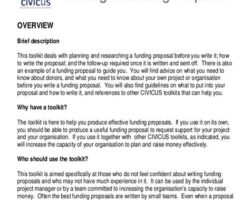Define your goals and objectives
When embarking on a learning journey, whether it’s a workshop, course, or training program, it is crucial to define your goals and objectives. Having a clear understanding of what you want to achieve will not only help you stay focused but also make the most of your learning experience.
First and foremost, take some time to reflect on what you hope to gain from the workshop. Is it acquiring new skills, expanding your knowledge in a particular area, or improving your professional capabilities? Defining your goals will allow you to set expectations and select the most relevant workshop.
Next, identify the specific learning needs that led you to seek out this workshop. This involves assessing your current skill set and knowledge gaps. Determine what areas you need to improve or develop further. By doing so, you can tailor your objectives to address these specific needs.
One helpful approach is to create a list of desired outcomes or learning objectives. This will serve as a roadmap for your learning journey. Be sure to make your objectives specific, measurable, achievable, relevant, and time-bound (SMART). For example, instead of stating a vague goal like “improve communication skills,” you could specify “enhance public speaking skills by participating in workshops and delivering at least three presentations within six months.”
- Acquiring new skills and knowledge
- Expanding professional capabilities
- Identifying and addressing knowledge gaps
- Setting clear and measurable objectives
- Creating a roadmap for your learning journey
| Benefits of Defining Goals and Objectives |
|---|
| 1. Focus and clarity: By defining your goals and objectives, you gain a clear understanding of what you want to achieve, allowing you to stay focused throughout the learning process. |
| 2. Motivation: Knowing what you aim to accomplish provides you with motivation and a sense of purpose. It keeps you driven and committed to reaching your objectives. |
| 3. Alignment: Setting goals and objectives ensures that your learning activities are aligned with your aspirations and needs, maximizing the relevance and impact of the workshop. |
| 4. Evaluation: Well-defined goals and objectives provide a basis for evaluating your progress and success. They allow you to assess your learning outcomes and measure the effectiveness of the workshop. |
In conclusion, when embarking on a learning journey, taking the time to define your goals and objectives is essential. It provides you with focus, motivation, and alignment with your aspirations. By setting clear and measurable objectives, you create a roadmap for your learning journey and ensure that the workshop you choose is the most relevant to your needs.
Identify your specific learning needs
Identifying your specific learning needs is an important step in the learning process. It allows you to focus on acquiring the knowledge and skills that are most relevant to your personal or professional development. Understanding what you want to achieve and what areas you need to improve upon will help you make informed decisions when selecting workshops or training programs.
There are several strategies you can use to identify your learning needs. One approach is to reflect on your current knowledge and skills. What are your strengths and weaknesses? What areas would you like to improve? Consider any gaps in your knowledge or skills that may be hindering your progress or preventing you from reaching your goals.
Another approach is to seek feedback from others. Ask colleagues, supervisors, or mentors for their input on areas where you could benefit from further development. Their insights can provide valuable perspective and help you pinpoint specific learning needs that you may not have been aware of.
Furthermore, conducting a self-assessment can be helpful. Assess your own performance in various tasks or projects related to your field. This can help you identify areas where you may lack confidence or skills. Additionally, reviewing job descriptions or competency frameworks relevant to your profession can provide guidance on the skills and knowledge required for success.
In conclusion, identifying your specific learning needs is a crucial step in your learning journey. By understanding what you want to achieve and where you need to improve, you can make informed decisions when selecting workshops or training programs. Reflecting on your strengths and weaknesses, seeking feedback from others, and conducting self-assessments are effective strategies to identify your learning needs.
Research workshop providers and their expertise
When it comes to attending a workshop or training program, it is essential to research the providers and their expertise. Choosing the right workshop provider is crucial as it directly impacts the quality of learning and the overall experience. Here are a few key points to consider while conducting your research:
1. Reputation and credibility: Start by evaluating the reputation and credibility of the workshop providers. Look for reviews, ratings, and testimonials from previous participants. This will give you an idea of their track record and the level of customer satisfaction.
2. Expertise and experience: Consider the expertise and experience of the workshop provider. Look for information about their trainers or facilitators. Check their qualifications, certifications, and industry experience. A provider with experienced professionals will ensure a high-quality learning experience.
3. Range of workshops offered: Look into the range of workshops or training programs offered by the provider. Assess whether they align with your learning goals and objectives. It is beneficial to choose a provider that offers diverse options, as it allows you to explore different areas of interest.
By considering these factors, you can make an informed decision and select a workshop provider that best suits your needs. Remember, thorough research beforehand will contribute to your overall learning experience and help you achieve your desired outcomes.
Consider workshop format and duration
When it comes to attending a workshop, it is important to consider the format and duration of the event. The format of a workshop refers to the way in which the content will be delivered to participants. This could include presentations, group discussions, hands-on activities, or a combination of these approaches. Choosing the right format is essential to ensure that the workshop aligns with your learning style and preferences.
Additionally, the duration of the workshop is another crucial factor to consider. Some workshops may be conducted over a single day, while others may span multiple days or even weeks. It is important to evaluate your own schedule and commitments to determine the feasibility of attending a particular workshop. You should also consider the level of depth and breadth of the topic being covered, as this will impact the amount of time required to fully explore and understand the content.
Moreover, the content-richness of the workshop is often influenced by its format and duration. Longer workshops may allow for more in-depth discussions and activities, providing participants with a greater understanding of the subject matter. On the other hand, shorter workshops may focus on specific aspects of a topic, condensing information into a concentrated session. Consider your own learning goals and objectives to determine which format and duration will best meet your needs.
- Is the workshop conducted in person or online?
- Does the workshop include hands-on activities or demonstrations?
- Are there opportunities for group discussions and collaboration?
- Does the workshop provide resources or materials for further learning?
- What is the expected time commitment for the workshop?
| Format | Duration | Content-Richness |
|---|---|---|
| Workshop A | 1 day | High |
| Workshop B | 3 days | Medium |
| Workshop C | 2 weeks | High |
In conclusion, considering the format and duration of a workshop is essential in order to make an informed decision about whether it aligns with your learning needs. By evaluating the format, duration, and content-richness, you can determine which workshops are most suitable for your goals and objectives. Remember to also take into account your own schedule and commitments to ensure that you can fully commit to and benefit from the workshop experience.
Evaluate workshop content and curriculum
Evaluating the content and curriculum of a workshop is crucial in determining its effectiveness and relevance. When choosing a workshop, it is important to carefully assess whether the content aligns with your specific learning needs and goals.
One way to evaluate the workshop content is to look for keywords or phrases that indicate the workshop’s focus. This can be done by reviewing the workshop description or syllabus. Look for specific terms that are relevant to your field or the skills you want to develop.
Next, consider the learning outcomes or objectives of the workshop. These should be clearly outlined and match what you hope to achieve. A workshop with vague or general goals may not provide the targeted learning experience you desire.
Now, let’s move onto the list and table HTML tags to present the content richly:
List of considerations for evaluating workshop content and curriculum:
- Relevance to your specific learning needs and goals
- Alignment with your field or area of interest
- Clear and specific learning outcomes
- Depth and breadth of the content covered
- Integration of relevant case studies or examples
- Inclusion of hands-on exercises or practical applications
- Use of engaging and interactive teaching methods
- Accessibility and clarity of workshop materials
- Opportunities for participant collaboration and discussion
- Up-to-date information and industry trends
By considering these factors, you can ensure that the workshop you choose has a strong and comprehensive curriculum that will provide you with the knowledge and skills you seek. Remember to evaluate the workshop content and curriculum critically to make an informed decision.
Assess the qualifications and experience of facilitators
When it comes to attending workshops or training sessions, it is crucial to assess the qualifications and experience of the facilitators. The facilitators play a significant role in delivering the content and ensuring that participants gain the most out of the session.
One way to assess the qualifications of facilitators is to research their background. Look for their educational qualifications, certifications, and any relevant industry experience. By understanding their academic and professional achievements, you can gauge their expertise in the subject matter.
Additionally, it is essential to consider the facilitators’ experience in delivering similar workshops or training programs. If they have a track record of conducting successful sessions and have received positive feedback from past participants, it indicates their ability to engage and effectively convey the information.
- Check their educational qualifications and certifications: Look for facilitators who possess relevant degrees, certifications, or training in the field of the workshop topic. This ensures that they have the necessary theoretical knowledge to guide the participants.
- Consider their industry experience: Facilitators with practical experience in the industry can provide real-life examples and insights during the workshop, enriching the learning experience for participants.
- Review their past workshops or training sessions: Look for reviews or testimonials from previous workshop attendees. Positive feedback indicates the facilitators’ ability to effectively communicate and engage the participants, resulting in a valuable learning experience.
Remember, the qualifications and experience of the facilitators can greatly impact the overall quality of the workshop. By carefully assessing these factors, you can ensure that you choose facilitators who are knowledgeable, experienced, and capable of delivering a successful workshop.
| Pros | Cons |
|---|---|
| Expertise: Facilitators with strong qualifications and experience can provide in-depth knowledge and insights. | Higher cost: Qualified and experienced facilitators may charge higher fees, which could impact the workshop budget. |
| Engagement: Facilitators who are skilled at engaging participants can make the workshop more interactive and impactful. | Limited availability: Highly qualified facilitators may have limited availability, making it important to book in advance. |
| Positive impact: Experienced facilitators can provide practical tips and guidance, helping participants apply the learning in their professional or personal lives effectively. | Inflexibility: Some highly qualified facilitators may have a structured approach, limiting their ability to cater to individual participant needs. |
Check workshop reviews and participant feedback
When considering attending a workshop or training program, it is important to thoroughly check workshop reviews and participant feedback. This step can provide valuable insight into the quality and effectiveness of the workshop, allowing you to make an informed decision.
One way to gather workshop reviews and participant feedback is to search online platforms and websites that specialize in training program reviews. These platforms often allow participants to rate and provide comments about their experiences. Reading through these reviews can give you a sense of the overall satisfaction level of past participants.
In addition to online reviews, it may be helpful to reach out to individuals who have previously attended the workshop you are considering. This can be done through professional networks, social media groups, or by directly contacting the workshop provider for referrals. By speaking directly with past participants, you can gain more detailed insights into their experiences and gauge whether the workshop aligns with your specific learning needs.
Furthermore, it is important to consider the credibility and reliability of the reviewers or participants providing feedback. Look for feedback from individuals who have similar backgrounds, goals, or skill levels as yourself. Their perspectives may hold more weight and relevance to your own learning objectives. Take note of any recurring positive or negative themes in the feedback, as this can help guide your decision-making process.
- Benefits of Checking Workshop Reviews and Participant Feedback:
- Gain insights into the workshop’s strengths and weaknesses.
- Understand how well the workshop meets participants’ expectations.
- Identify any potential red flags or areas of concern.
- Make an informed decision based on the experiences of others.
In summary, checking workshop reviews and participant feedback is an essential step before committing to a training program. It provides valuable insights into the workshop’s quality, effectiveness, and relevance to your specific learning needs. By considering the feedback of past participants and thoroughly evaluating their experiences, you can make a well-informed decision and ensure that the workshop aligns with your goals and objectives.
Frequently Asked Questions
What are the goals and objectives of attending a workshop?
The goals and objectives of attending a workshop may vary depending on individual needs and interests. Some common goals include acquiring new knowledge and skills, gaining practical insights and strategies, networking with like-minded professionals, and staying updated with the latest industry trends.
How can I identify my specific learning needs before choosing a workshop?
To identify your specific learning needs, take some time to reflect on your professional goals, areas of weakness or skill gaps, and the knowledge or skills you want to acquire. Consider conducting a self-assessment, seeking feedback from peers or supervisors, and reviewing job descriptions or industry research to help determine your specific learning needs.
What should I consider when researching workshop providers?
When researching workshop providers, consider their expertise and experience in the specific subject or industry you are interested in. Look for their credentials, certifications, and reputation. Additionally, consider their track record of delivering quality workshops, the range of topics they cover, and whether they have testimonials or previous client references available.
How should I determine the format and duration of a workshop?
Determining the format and duration of a workshop can depend on various factors such as the complexity of the topic, your availability, and your learning preferences. Consider whether you prefer an in-person or virtual workshop, the level of interactivity you desire (e.g., hands-on exercises, group discussions), and the amount of time you can allocate to attend the workshop. Additionally, check if the workshop offers flexible scheduling options or recordings for future reference.
What factors should I consider when evaluating workshop content and curriculum?
When evaluating workshop content and curriculum, consider whether it aligns with your learning needs and goals. Look for a clear outline of the topics covered, the depth of knowledge provided, and the practicality of the skills taught. Additionally, check if the curriculum includes case studies, real-world examples, or hands-on exercises to enhance the learning experience.
How can I assess the qualifications and experience of workshop facilitators?
To assess the qualifications and experience of workshop facilitators, review their profiles or biographies provided by the workshop provider. Look for their educational background, relevant certifications, and experience in delivering workshops or training in the specific subject area. You may also consider searching for their published works, speaking engagements, or any industry recognition they have received.
Why is it important to check workshop reviews and participant feedback?
Checking workshop reviews and participant feedback helps you gauge the overall quality and effectiveness of the workshop. By reading reviews and feedback from previous participants, you can get insights into the facilitator’s teaching style, the workshop’s organization and structure, and the value others have gained from attending. This information can help you make an informed decision and ensure the workshop aligns with your expectations.





